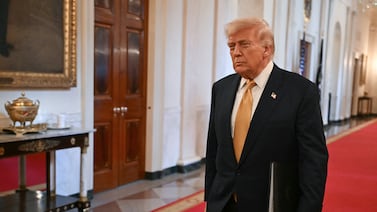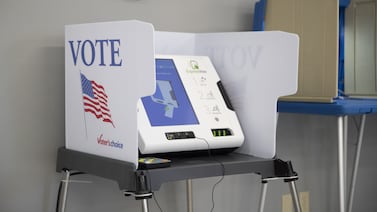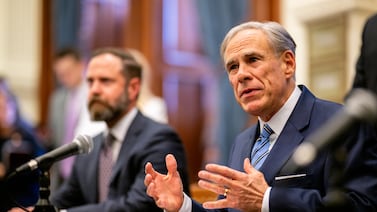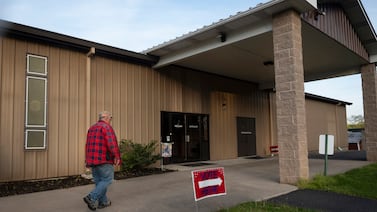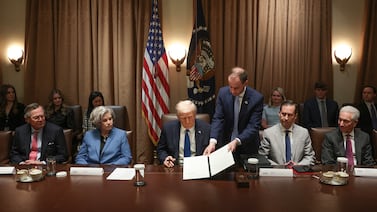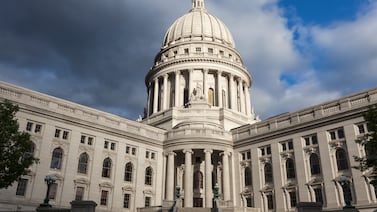Election Laws
Wisconsin Elections Commission’s investigative report says she knew about the first batch of uncounted ballots on Nov. 12. She didn’t notify the commission until Dec. 18.
A flurry of letters seek access to voter rolls and details on registration procedures, in support of Trump’s directives.
The facility was at one point used as used by an “unauthorized” person for shelter, according to the election commission’s latest report on the ballot snafu.
Trump’s Justice Department has forged ahead in the case, even after dropping many other voting-rights lawsuits brought under Biden.
Thomas Crosby files a claim for $300,000 as he fights charges for allegedly delaying certification of midterm results.
Trump aides have been pushing for a midcycle redistricting to boost GOP chances of keeping the U.S. House.
Support for early voting, voter ID requirements grows after Pennsylvania voters have a chance to talk out their differences.
Proposals to give independent and unaffiliated voters a greater voice are popular, but face tough odds in the legislature.
A technical committee will soon review proposed changes to certification guidelines for voting systems. Local officials worry about the potential cost — and the impact on public faith.
Groups like Rank MI Vote want the state to adopt the method that was just used in New York City’s mayoral primary.
If approved, the accord would close out four years of litigation over a 2021 law that drew a challenge from groups representing voting rights groups.
Localities try extending the franchise to 16- and 17-year-olds, hoping to trigger a lifelong habit.
Approved measures include a new early-voting schedule, revised mail-voting procedures, and curbs on curbside voting. But some major GOP priorities stalled.
Wisconsin Republicans want to require that all proposed constitutional amendments come with a plain-language explanation for voters, but critics say the bill needs work.
Parts of Trump’s executive order on elections blocked by a federal court
As part of a civics project, a group of citizens gather to discuss pre-canvassing, early voting, and ID requirements. Their deliberations could shape pending legislation.
Maricopa County Recorder Justin Heap says supervisors failed to negotiate who runs what parts of the county’s elections.
A 14-count indictment alleges that Republican Austin Smith signed petitions for 10 voters himself.
Justice Department letters cite Wisconsin’s handling of complaints, Arizona’s identification checks as violations of Help America Vote Act.
Jane Nelson said the state used new access to a federal database to screen names. The number is a tiny fraction of the roughly 11.3 million Texans who cast ballots in the November 2024 election.

